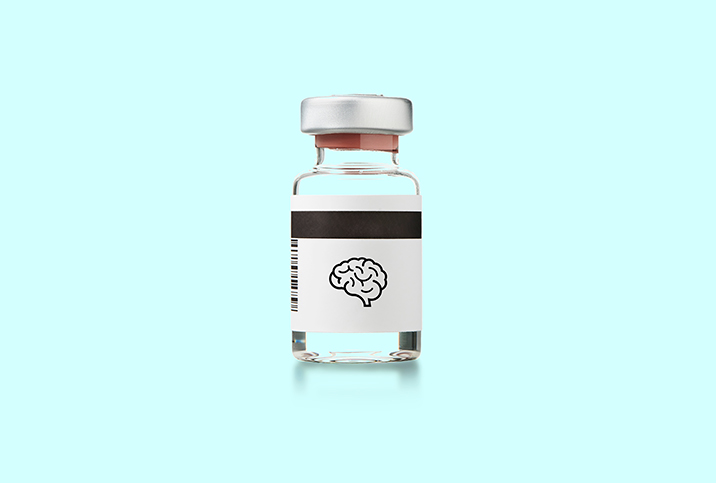What Is Alzheimer's Disease and How Do You Know if You Have It?

Forgetting things in our daily lives is often seen as an inevitable part of aging. But how do you know if these symptoms are a sign of a more serious problem, such as dementia or Alzheimer's disease?
The Centers for Disease Control and Prevention (CDC) defines Alzheimer's as a progressive disease that starts with memory loss and could potentially lead to an individual's loss of ability to continue a conversation, respond to their environment or carry out daily tasks.
This process occurs when the brain cells responsible for memory and other functions begin to die.
Alzheimer's disease is the most common type of dementia and affects parts of the brain that control thought, memory and language. The disease can also affect a person's sex drive, most often decreasing libido, but in some cases causing sufferers to show more interest in sex than before. They may exhibit new sexual behavior, including touching strangers or themselves in public, using vulgar language and taking their clothes off around others. But sometimes these behaviors are not sexual in nature but more about a lack of comfort or feeling pain, confusion or loneliness.
Based on studies done by the Alzheimer's Association, an estimated 6.5 million Americans ages 65 and older were living with Alzheimer's in 2022. One in 3 seniors dies with either Alzheimer's or another type of dementia.
Alzheimer's disease kills more people than breast cancer and prostate cancer combined. In 2022, Alzheimer's disease and other forms of dementia cost the nation an estimated $321 billion. By 2050, these costs could reach nearly $1 trillion.
According to the Alzheimer's Foundation of America (AFA), the risk of getting Alzheimer's doubles every five years after age 65. However, there is also a possibility of early-onset Alzheimer's among younger people.
The different stages and symptoms
There is no known cause or cure for the disease, and people with Alzheimer's typically go through several stages:
Early stage
In the early stage, mild symptoms of dementia such as forgetfulness might begin to appear. There may also be a reduction in the ability to focus, and picking up new skills may be more difficult.
These early signs and symptoms may not be apparent and may be noticed only by close family members and friends.
Nicole Purcell, D.O., a neurologist based in Harrisburg, PA, and the senior director of clinical practice at the Alzheimer's Association, explained that these signs may not necessarily mean a person has Alzheimer's but signals that the individual (or their loved ones) should start paying attention to these symptoms and get evaluated by a doctor.
Aside from memory loss, other warning signs can signal cognitive decline, she added.
"[This includes] altered judgment, mood changes and challenges in decision making, and planning and carrying out projects," Purcell said. "For example, you may see a family member struggling with day-to-day tasks they used to do easily, like making a familiar recipe or balancing the checkbook. Difficulty with words—getting lost mid-conversation and finding it hard to get back on track—is also common."
The individual might also start to misplace items, find it difficult to retrace their steps, or withdraw from social gatherings and activities that they used to enjoy.
"Some memory changes can be a normal part of the aging process, but when changes start to interfere with daily living or stray drastically from the person's normal behavior, it's best to get it checked," Purcell said.
Middle stage
In the middle stage, dementia symptoms might become more pronounced. Individuals might start confusing words and get frustrated or angry. It can be difficult for an individual to express their thoughts and perform routine tasks without help due to the damage to the nerve cells in the brain.
They might experience difficulty in controlling their bladder and bowels, and an increased tendency to wander or lose their way.
Some sufferers might start to demonstrate personality and behavioral changes. For example, they might become more suspicious of the people around them, have delusional or compulsive tendencies, or even display repetitive behavior like hand-wringing or tissue shredding.
"The symptoms of Alzheimer's can affect people differently, so it's difficult to say one is worse than another," Purcell said. "It really depends on the severity of the symptom and how it impacts a person's life."
In general, patients at this stage can still take part in their daily activities with some assistance, so the caregiver or loved ones need to find out what the individual can and cannot do, as well as help them to simplify tasks.
At this juncture, an adult day care center or respite care might be helpful to give full-time caregivers a temporary break.
Late stage
As the individual's conditions worsen in the late stage, the symptoms of dementia become more severe. They may lose their ability to respond to their environment and may need help with basic tasks such as eating, bathing, dressing and using the washroom.
They may require 24/7 assistance and lose their ability to make facial expressions or communicate, except for basic words and phrases, due to the worsening of memory and cognitive skills.
During the final stage of Alzheimer's, the individual's movements may become severely limited: they may experience changes in their ability to walk, sit and swallow. They can also become more susceptible to infections such as pneumonia.
Although they might not be able to initiate engagement with people, it is still helpful for them to have a certain level of interaction, such as reassuring touches or listening to music to help them relax.
Caregivers might want to consider hospice care at this stage, as late-stage patients require extensive care to maintain their comfort and quality of life.
According to studies, people suffering from Alzheimer's generally live for four to eight years after diagnosis, while some can live for up to 20 years.
How you are diagnosed
As there is no single, specific diagnostic test that can determine if an individual has Alzheimer's disease, physicians often use a variety of approaches. These may include:
- Brain imaging study
- Cerebrospinal fluid (CSF) tests, as early-stage Alzheimer's may cause changes in CSF levels
- Cognitive, functional and behavioral tests to assess the individual's memory, thinking and simple problem-solving abilities
- Performing neurological examinations, such as testing for reflexes, coordination, eye movement, speech, sensation, etc. This is done to evaluate if the individual may have other brain disorders, such as a stroke, Parkinson's disease or brain tumors, besides Alzheimer's.
- Performing physical examinations and diagnostic tests, such as checking blood pressure, collecting blood or urine samples for laboratory testing and so on
- Understanding the person's medical history
Regardless of when symptoms begin, it's important to get your diagnosis early—a task many patients fail to do.
"Unfortunately, there is often a considerable gap between the time someone first starts experiencing cognitive issues and going to their doctor for help," Purcell noted.
She explained that reasons for this lack of action include the stigma associated with Alzheimer's that prevents patients from raising concerns with their doctors, a lack of health insurance and access to healthcare providers, and doctors being too pressed for time for patients to ask about symptoms that might be left unsaid during routine visits.
"It's [also] common for people to dismiss changes in their memory and think of it as 'just getting older,'" Purcell said. "And while it's true we all experience some level of cognitive decline as we age, when the decline starts to interfere with daily living, it's best to get it checked as soon as possible."
With the recent Food and Drug Administration approval of treatment targeting the early stages of Alzheimer's, and more treatments in development, Purcell stressed the importance of early detection and diagnosis.
"[Doing so] provides individuals and their caregivers more time to plan for the future, adopt lifestyle changes that may help slow disease progression…and to live with a higher quality of life for as long as possible," she said.


















